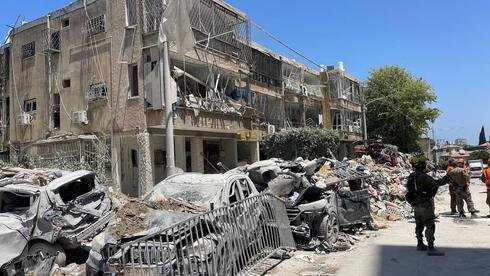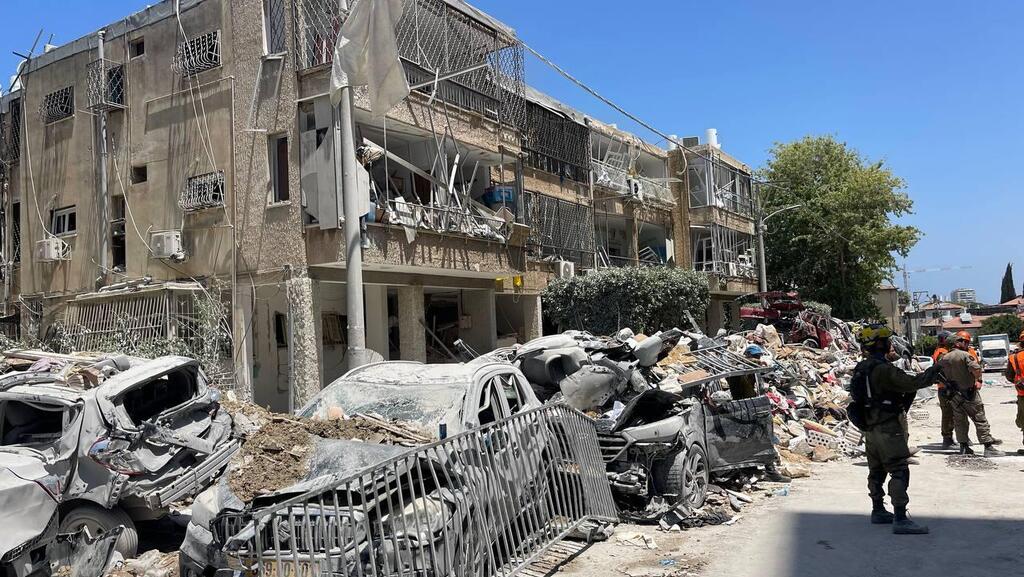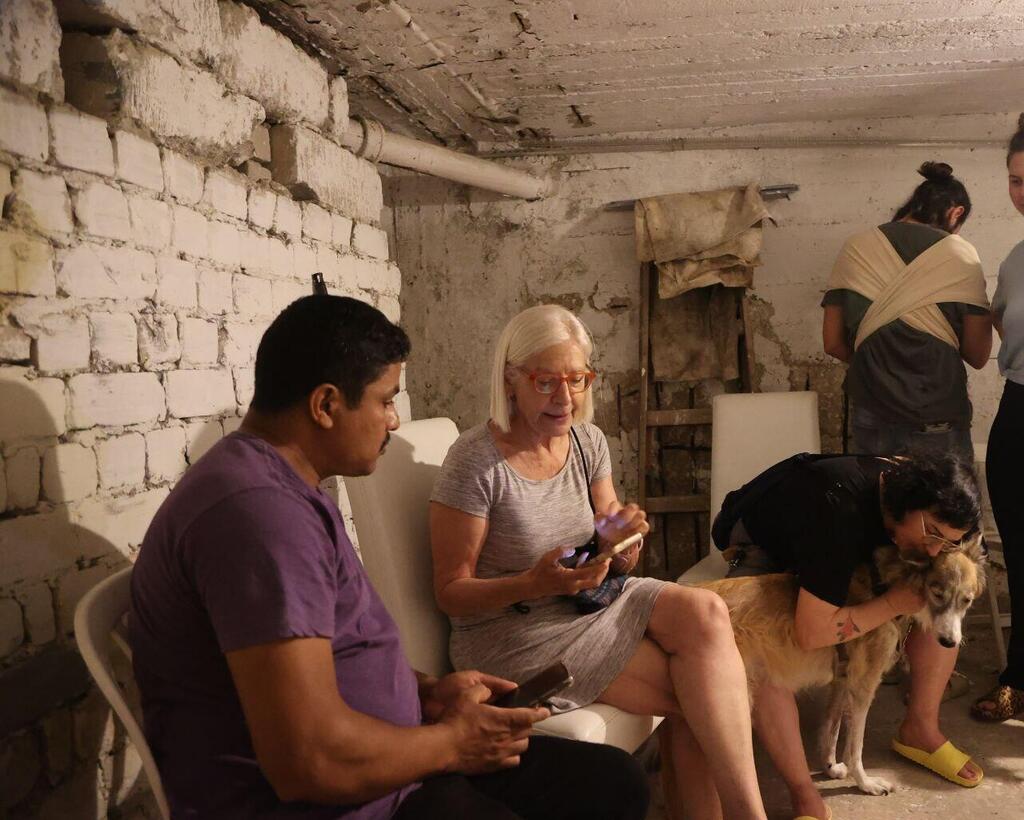There's a special kind of torment reserved for parents who are thousands of miles away when war erupts at home. It's the kind where you're simultaneously "safe" and completely destroyed, where every news alert makes your heart stop, and where the phrase "you're lucky to be away from all this" makes you want to scream.
My children are there. My heart is there. My washing machine is there, too—because apparently, even in crisis, the mundane details of life insist on mattering.
A rocket fell near my home, turning a building into what can only be described as expensive confetti. I have no safe room in my house, but I have something more dangerous: a parent's imagination running wild at 3 a.m., calculating flight paths and blast radiuses while washing my underwear in a hotel sink.
The irony isn't lost on me that I'm abroad showcasing a play about generational trauma from the Holocaust, while back home my own children are living through what might become their defining chapter. The play is called "Whistle"—fitting, since I feel like I'm whistling in the dark, trying to make sense of a world where the lessons of history seem to echo rather than educate.
Here's what keeps me awake: the impossible mathematics of preemption. On October 6, 2023—one day before the Hamas massacre—if Israel had struck first, the world would have called us aggressors. Instead, we waited, were attacked, massacred and somehow still ended up cast as the villains in too many narratives. It's like being mugged and then blamed for bleeding on the sidewalk.
With Iran, the equation became even more terrifying. They weren't hiding their intentions—they were broadcasting them, building toward nuclear capability while funding every terrorist organization with a grudge and a rocket launcher. Their stated goal was and remains the destruction of Israel. When Trump's ultimatum expired on June 12 with nothing but silence from Tehran, Israel faced a choice no nation should have to make: wait to be the victim of nuclear terror, or act first and accept the moral complexity that comes with preemption.
Our babies pay the price for these wars. Maybe their babies will too
We chose survival. In a country so small that one nuclear weapon could rewrite our entire story, waiting felt like assisted suicide.
The bitter irony? The people who understand this best are the Iranians themselves—the ones living under the boot of the regime that executes its own citizens for the crime of wanting freedom. They're not quietly rooting for Israel—they're shouting it from social media rooftops, protesting openly for Israel, refusing to choose Hamas even when this defiance could cost them their lives. They understand better than anyone that Israel isn't fighting the Iranian people, but the regime that has hijacked their country and threatens to export its medieval brutality worldwide.
Meanwhile, I'm stuck in Europe, washing my underwear in a hotel room sink for two days now—which in a crooked sense makes me feel part of the horror, though I'm paying only a small price compared to what's happening back home. I have two plays running—a cruel coincidence that would be funny if it weren't so heartbreaking. "Whistle" won an award for best German translation, exploring inherited Holocaust trauma while my own children potentially inherit new wounds. And then there's "I Love Mama," a comedy about the challenges of modern motherhood that's been touring Slovakia.
When I wrote "I Love Mama," I thought I was exploring the complex landscape of modern motherhood—the tension between career and children, the way relationships shift when babies arrive, the complicated dance of sexuality and maternity. It's a 10-actor ensemble piece that tries to capture all the contradictions of being a woman in the modern world.
I couldn't have imagined then that the real challenge would be being thousands of miles away while rockets fall near their bedrooms. The comedy premiered on October 7, 2023—the exact day of the massacre. There were no celebrations… Instead I dedicated the production to the parents who lost their children and the children who lost their parents that very same day.
Life, it seems, has a twisted sense of timing. Here I am, celebrated for writing about motherhood while being the worst kind of mother—the one who isn't there when her children need her most.
The UN continues its theater of moral equivalence, treating terrorists and democracies as equally culpable. It's like watching a referee call fouls on both the boxer and the punching bag.
But here I am, a parent in exile, refreshing news feeds and checking flight status updates that never change. There are no flights in or out. My babies are there, and I am here, and the distance feels like a physical ache.
The hardest part isn't the fear—it's the helplessness. I can write plays about trauma, but I can't shield my children from potentially living it. I can win awards for exploring inherited pain, but I can't prevent passing on new pain to the next generation.
Our babies pay the price for these wars. Maybe their babies will too.
But I'm going home. The moment those flights resume, I'm going back to my children, my heart and, yes, my washing machine. Because some things—like being there when your children are afraid—are worth more than safety. Some things are worth everything.
I pack once again, moving on to the house of dear friends and colleagues in Bratislava whose heart and home are always open, Darina and Samuel Abrahamova…
Oops I forgot the wet underwear on the hotel windowsill…



